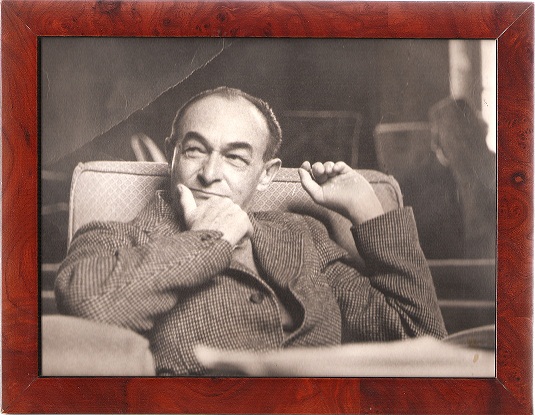<Back to Index>
- Mathematician Raphaël Salem, 1898
- Composer Carl Emil Paul Lincke, 1866
- Indian Revolutionary Bipin Chandra Pal, 1858
PAGE SPONSOR


Raphaël Salem (November 7, 1898 in Saloniki, Ottoman Empire (now Thessaloniki, Greece) – June 20, 1963 in Paris, France), was a Greek - Sephardic mathematician after whom are named the Salem numbers and whose widow founded the Salem Prize.
Raphaël Salem was born in Saloniki to Emmanuel and Fortunée Salem. His father was a well known lawyer who dealt with international problems. Raphaël was brought up in a Jewish family who followed the traditions of their ancestors. At age 15 the family moved to France and Salem attended the Lycée Condorcet for two years. Believing that he would follow in father's footsteps, Salem entered the Law Faculty of the University of Paris. His interests, though, were not in law but rather in mathematics and engineering. Soon there after Salem started taking mathematics courses with Hadamard all the while continuing his studies in law. In 1919 he graduated from Licencié et lauréat and received his law degree. He then began working for a doctorate in law but quickly decided to change direction to science, which he had been studying for years in parallel to his work in law.
He received his Licencié ès sciences from the Sorbonne and then worked for a degree in engineering. In 1921 he received the degree of Ingénieur des Arts et Manufactures from the École Centrale. Having completed his studies in law, science and engineering Salem then went into banking and started working for Banque de Paris et des Pays - Bas in 1921. In his free time he worked on Fourier series, a topic which interested him throughout his life.
In the spring of 1939 Salem collaborated with the brilliant young Polish mathematician Józef Marcinkiewicz, and he continued to write mathematics papers while still working for the bank. With a deteriorating political situation in France and the beginning of World War II in
September 1939, Salem was called up for military duty. He was attached
to the Deuxième Bureau of the General Staff of the French Army.
He was sent to England to assist the Head of the Franco - British Coordination Committee but he was demobilised in June 1940. Salem left England in the autumn of 1940 and emigrated to the United States where he settled in Cambridge, Massachusetts. In 1941, he was appointed as a lecturer in mathematics at MIT, were he was rapidly promoted and became an assistant and associate professor. In 1958 he was appointed as Professor at the Sorbonne and
lived in Paris until his death. After Salem's death his wife
established an international prize for outstanding contributions to
Fourier series. In
1923 Salem got married to a young woman named Adriana and the couple
had three children: a daughter and two sons. His father died in Paris in 1940 while his mother, his sister, his sister's husband, and his sister's son, were all arrested and deported to a Nazi concentration
camp where they all died. Salem's older son survived the war and he
enlisted in the free French Forces and took part in Allied landings
in the South of France in 1944. By this time his surviving family had
managed to escape from France and they relocated to Canada. Aside
from his interest of mathematics, Salem also loved music and playing
the violin, preferring to play in quartets. He was also interested in
the arts and literature. He also enjoyed sports especially skiing and
horse riding.